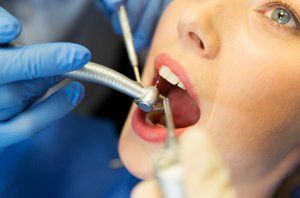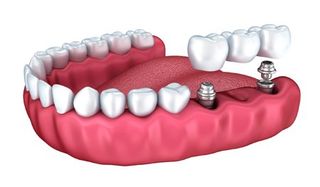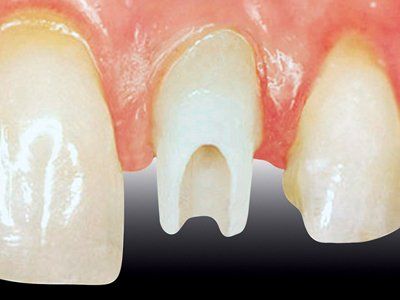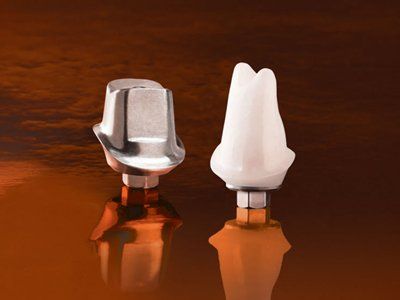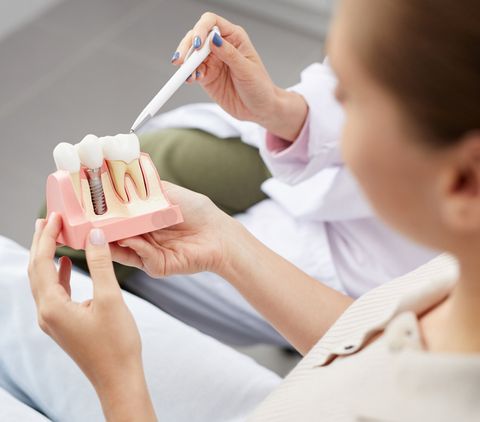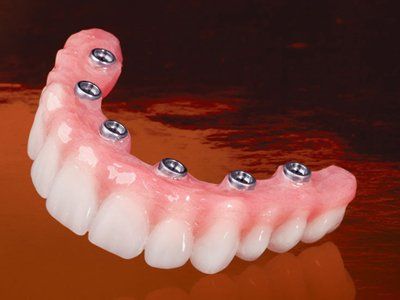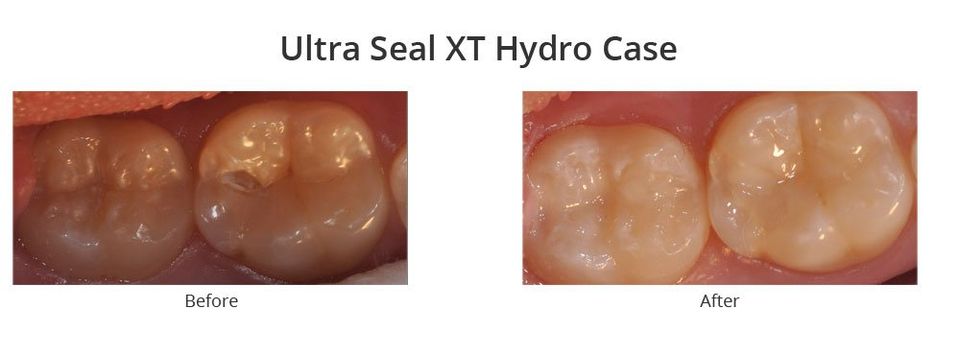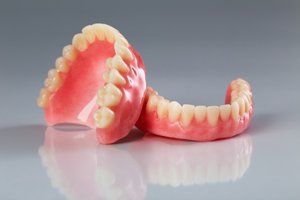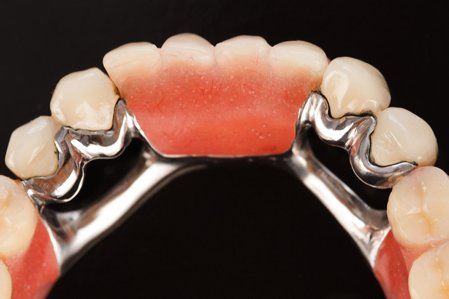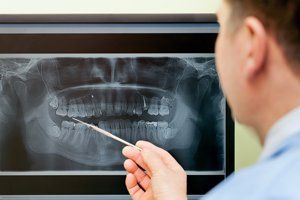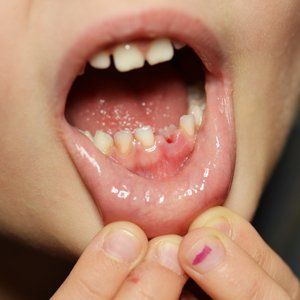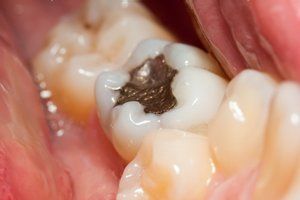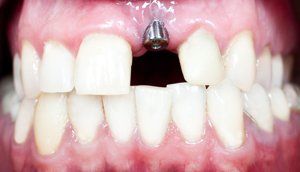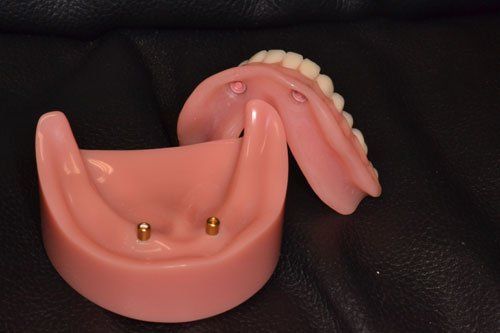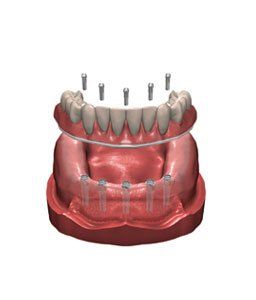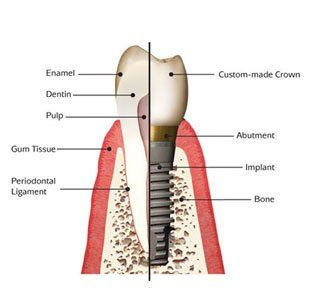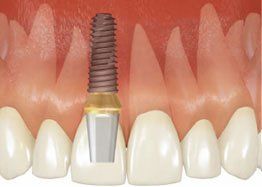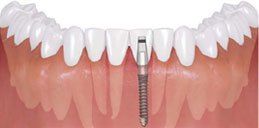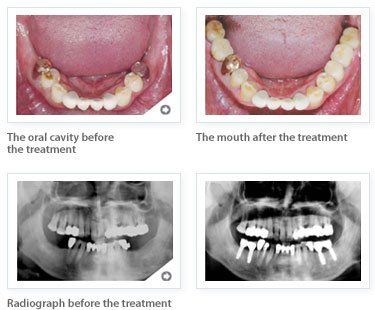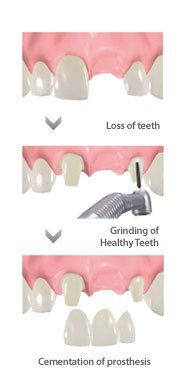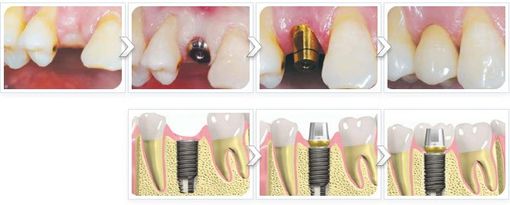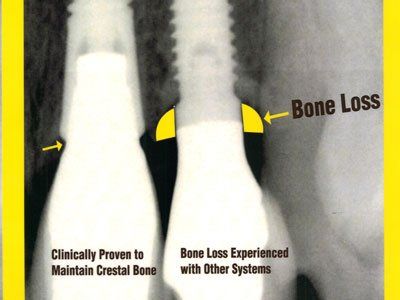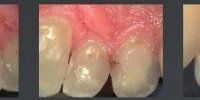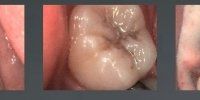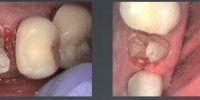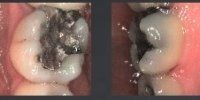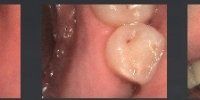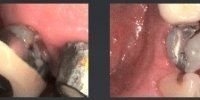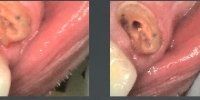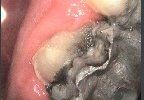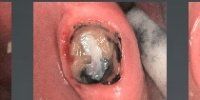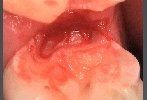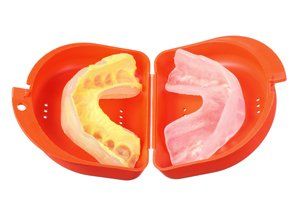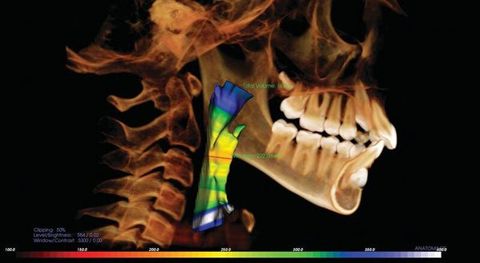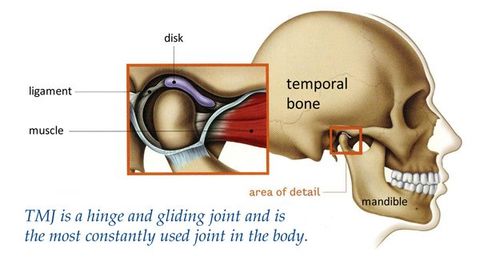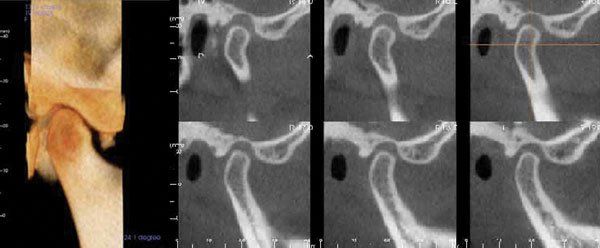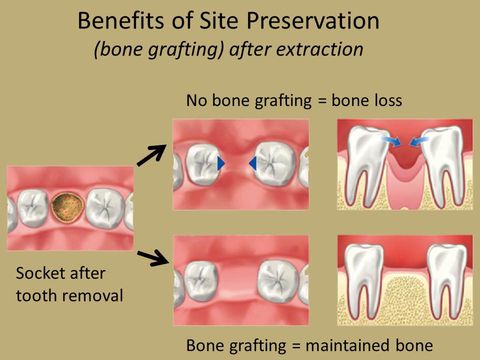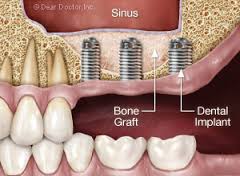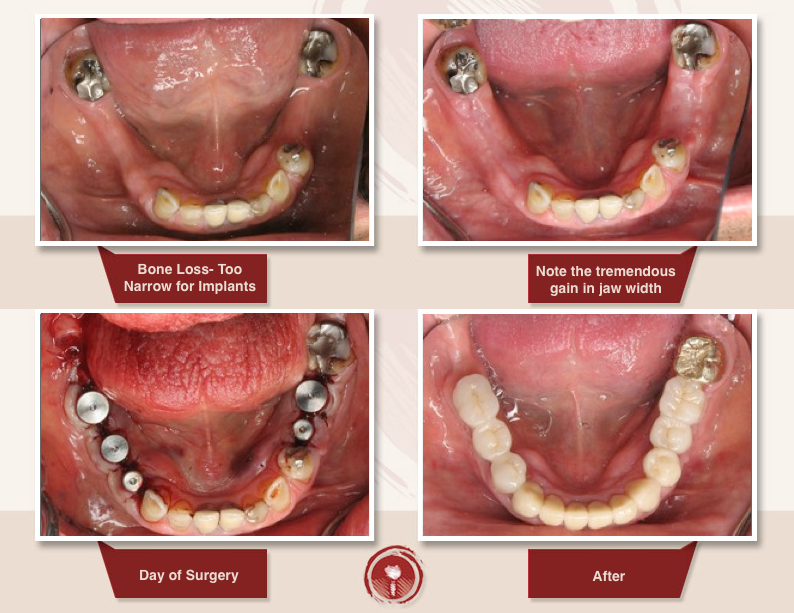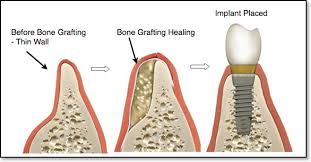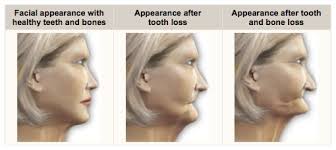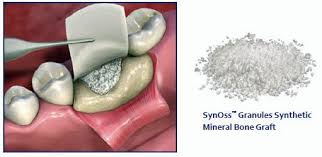Complete General Dentistry
Dental Services
Choose
Children & Adult Dentistry for
general dentistry services in
Fort Myers, FL. Call
(239) 939-7070 to schedule an appointment.
Comprehensive Exams
Your oral health is the main priority of Children & Adult Dentistry. A comprehensive dental exam will allow us to make an extensive evaluation of your teeth, gums, throat, tongue, lips, and jaws.
According to the American Dental Association, this type of exam is an in-depth evaluation of the patient’s intraoral, extraoral and soft tissues, and they recommend it for all new patients, as well as every 3 years for established patients.
The ADA also recommends a periodic oral exam for all patients to determine if there are any changes in their oral and health status from their last examination.
Comprehensive Exam Procedure
We will examine your tooth surfaces for any signs of decay or damage. We will also check your gums and the bone surrounding your teeth for possible signs of gum disease.
In addition, we will perform oral cancer screening by checking your neck, face, tongue, throat, lips, gums, and soft tissues for any signs of abnormalities.
We will also take radiographic images of your teeth and root positions so we can have a more thorough look at your mouth structure and your oral health.
Other diagnostic procedures that will be performed during a comprehensive exam include a TMJ exam, Salivary Function Test, Esthetic Exam, and Bite Analysis.
With a comprehensive dental exam, you’re assured that no stone is left unturned. We will find out everything there is to know concerning your oral health to address any issues as soon as possible.
To schedule a comprehensive dental exam, please call our office at (239) 939-7070.
Crowns and Bridges
Crowns
As the name suggests, a dental crown is a covering or cap for a tooth. We may recommend crowns if you have teeth that are cracked, broken, or discolored. Crowns may also be needed to protect worn down teeth or to cover dental restorations, including implants and bridges.
Crowns improve the appearance and strength of the tooth and your dentist may recommend porcelain, resin or gold material for your dental crown.
Bridges
A dental bridge is a structure made of ceramic, and it spans the gap left by an extracted or missing tooth. A pontic (ceramic tooth) is fused between 2 or more crowns on either side to serve as an anchor. It is then shaped to accommodate the dental crown/s, and a bridge is bonded securely over them. Both the pontic tooth and the dental crowns are customized to match the shape and color of your natural teeth.
A dental bridge can prevent neighboring teeth from moving and deteriorating and restores your ability to chew properly. It is esthetically appealing because it looks just like the rest of your healthy teeth, so you’ll feel more confident about your smile.
If you think you can benefit from a dental crown or bridge, please call our Fort Myers dental office at (239) 939-7070 to schedule an appointment.
Dental Implants
Millions of Americans lose one or more teeth due to injury, tooth decay, tooth fractures with and without root canals, and/or gum disease. Today, people with missing teeth can choose to place dental implants. Dental implants are replacements for your tooth roots, which act as a foundation for your missing teeth. In the past, the only treatment options available were dentures and bridges.
In our office, we boast that our success rate for dental implants is more successful than 98%. Our secret for success may depend largely on where and how the implants are placed and, more importantly, what type of implant was used. One of the most interesting things about implants is that there is usually no pain during or after the procedure. Some soreness may be expected, but most clients never need any pain meds at all.
Procedure:
The first step is to create a customized treatment plan prepared by our team of dentists that addresses your specific needs. A 3 dimensional Cat Scan (CBCT) may be required to definitively know where the best placement would be–based on bone density, functionality, and esthetics.
The implant will be placed into your missing tooth’s bone socket. This titanium screw will fuse and become one with your jawbone, which will anchor it securely, in a process called ‘osseointegration’. The healing process takes up to 12 weeks.
Once osseointegration is completed, an impression for your custom abutment and crown will be taken at the same appointment. At the final appointment, the post or “abutment” is screwed to the implant to hold your new crown.
The bond created at that junction of the internal hex of the abutment to the implant is called a cold fusion weld and is an extremely strong natural weld.
The type of abutment we use in our office is called “custom abutments.” This ensures correct alignment to your bite and optimal esthetics for the crown to be placed on top of the abutment. If a generic abutment is used, it could be misaligned out of the chewing forces, which would put increasing stress on the implant as well as the cold fusion weld junction, which may lead to a loosened or fractured screw causing you to lose the crown and abutment or at the worst-case scenario –loss of the implant. Bone likes to feel passive pressure.
If you put incorrect forces on an implant, the bone will reabsorb and potentially fail over time.
If you have several missing teeth, we may recommend using several implants to run a bridge or attach them to a removable denture instead of individual dental crowns. In both options, the new teeth are made to look like your natural teeth (shape, size, and color). Moreover, because the implants are held securely within the jawbone, the feel and function of your replacement teeth are just like your own natural teeth.
For people that would like more of a permanent solution to dentures, we can make a “hybrid” denture. This denture will be permanently attached to the implants and require removal once a year for cleaning the implants and the denture. It is then screwed back on for another year. How happy will you be not to have to put your teeth in a cup at night: life-changing!
Why Choose Dental Implants?
There are a handful of reasons why many people are opting for dental implants.
- Dental implants can improve your smile tremendously. They look and feel like your own natural teeth.
- They do not affect your speech. Implants can help you speak more clearly. With dentures, the teeth can slip and cause you to mumble.
- Dental implants do not cause discomfort. Ill-fitting removable dentures can be uncomfortable to wear.
- You won’t have difficulty eating. Because dental implants are fixed, permanent structures, eating won’t be a problem. You can eat your favorite foods without any pain or worry. You will be able to taste your foods better as well.
- There is no decay possible. Dental implants are made of titanium.
- There is no pain during or after the placement of implants.
- Finally, dental implants can last for many, many years. In fact, with proper care and good oral hygiene, they can last a lifetime.
Can Children Get Dental Implants?
A lot of children lose their permanent teeth. But most are not suitable candidates for dental implants mainly because their jaws are still developing. If the implant is performed, it could end up in the wrong position as the child’s jaw continues to develop.
However, there are cases in which an implant becomes a necessary element of orthodontic treatment. Both the oral surgeon and orthodontist will work together closely on any interventions needed to make the treatment successful.
For the most part, children who have lost their teeth don’t receive dental implants while they’re young, but they can be eligible for this treatment when they get older.
Is It For Me?
While implants are more expensive, they last significantly longer with no decay issues. Considering the convenience, comfort, and confidence you’ll gain from this procedure, it is well worth the investment for your health and well being. Loss of one tooth will create a 20% loss of chewability (mastication). For multiple teeth, you can only imagine the difficulty in chewing your food or how your smile will look to you and to your co-workers or even your boss at work.
But dental implants are not for everyone. We will need to check if you have sufficiently healthy gums and bone to hold the implant. You also need to be in good health. Don’t forget—without being able to chew your food into small pieces, you can’t correctly digest the nutrients in the food leading to poor digestion and potentially bad health, i.e., diabetes, high blood pressure, atherosclerosis, and high cholesterol, to mention a few.
Dental implants are, without a doubt, the #1 choice for patients who require tooth replacement. To find out if you’re a suitable candidate for this procedure, please schedule an appointment with our office by calling (239) 939-7070.
You can also go online to our website Childrenandadultdentistry.com, and on the home screen, go into “Complimentary Consultation.” Answer the questions to the short questionnaire, print it, and bring it with you to your appointment to discuss your concerns with us.
Dental Sealants
BPA-FREE dental sealants
Our office is committed to using BPA-free sealants to ensure we’re providing the best care for your child. We’ve chosen to use UltraSeal XT plus or UltraSeal XT hydro from Ultradent not only because they’re great products that can help prevent cavities in your child’s teeth but also because of Ultradent’s commitment to using BPA-free materials.
A message from Ultradent, our sealant manufacturer:
“Ultradent has, for many years, been aware of the risks associated with BPA, and we are passionate about ensuring our dental sealants are BPA free. We even hired an independent third-party laboratory to test for BPA in our sealants. Using the most sophisticated analytical equipment and processes, they couldn’t even find a trace amount.
At Ultradent, we’ve never used ingredients that contain BPA in our dental sealants, UltraSeal XT plus and UltraSeal XT hydro. And we never will.”
– Dr. Dan Fischer
President and CEO
Ultradent Products, Inc.
Dentures
There are many reasons people lose their teeth. Some may be because of an accident; others may be due to an illness. There are also those who lose their teeth as a result of aging or poor oral hygiene. But regardless of the reason, the effects are the same: people with missing teeth often feel less confident about themselves, and at the same time, their ability to chew is also affected.
At Children & Adult Dentistry, we have many patients who come to our office looking for a solution to missing teeth. Our dentists can restore the function and aesthetics of your teeth by implementing either a partial or full denture treatment plan depending on your needs.
Advantages of Dentures
Also referred to as false teeth, both full and partial dentures offer several key advantages:
- Improved chewing ability
- Improved smile
- Improved facial appearance
- Improved speech
- Improved oral health
The denture’s tooth portion is comprised of ceramic material or a comparable material, so it’s durable and strong. The base is made of acrylic, which ensures comfort when worn over the gums.
Full Dentures vs. Partial Dentures
Full dentures are composed of a full set of lower and upper teeth. This type of denture is recommended for patients who have lost all their teeth or if the remaining teeth have deteriorated and need to be removed. Partial dentures, on the other hand, fill the spaces created by a few missing teeth and prevent neighboring teeth from shifting.
What to Expect
Obtaining dentures entail several appointments with your dentist in the course of several weeks. Your dentist will first get impressions and measurements to create your custom denture. Once the denture is ready, you will need to fit it, and it will be adjusted as necessary to ensure proper fit, color, and shape.
In the beginning, you may notice an increase in the flow of saliva in your mouth as well as some soreness and difficulty in chewing. These are normal and will subside after a few days. Your dentist will provide you with care instructions, and by caring for them properly and visiting your dentist regularly, your dentures can last a very long time.
Alternative to Conventional Dentures
Patients who do not like the traditional metal-based dentures can opt for flexible partial dentures that are not rigidly attached to your remaining teeth. This type of denture feels more comfortable and natural-looking because of its design, materials, and fit. Flexible dentures can also be made faster than conventional dentures.
If you have missing teeth, you may be a good candidate for dentures. Please call our Fort Myers dental office at (239) 939-7070 to schedule an appointment.
Dental Amalgam
Concerns have been raised about the use of dental amalgam due to its mercury content. But many studies have shown that amalgam is safe for filling cavities.
This material has been used for over 150 years, and dentists have learned a great deal about its safety, as well as its reliability and durability. Millions of people have been able to retain their teeth and overall health by choosing to get amalgam fillings.
Remember that by opting not to have your cavities treated, you run the risk of developing serious health issues.
There have been no properly designed study that was able to prove that dental amalgam causes long term effects to one’s health. Highly credible agencies, including the Centers for Disease Control and Prevention, US Environmental Protection Agency, and other leading public health agencies in the nation have reviewed numerous scientific studies on dental amalgam, and they have determined it is safe to use, aside from being a very effective material for dental fillings.
Let me explain why this is so. Amalgam fillings only release very small amounts of mercury gas, so small that it’s measured in billionths of an ounce. In this quantity, mercury is at a very safe level.
The Code of Ethics of the ADA states that dentists who remove perfectly usable amalgam fillings from a patient who is not allergic to the material and claiming that doing so will improve or cure a condition or disease are acting unethically, misleading patients about the benefits of the treatment.
Dental amalgam is the most extensively researched and examined restorative material in the field of dentistry. It remains an important treatment option for patients and dentists.
Digital X-Rays
Traditional dental X-rays that are being used today emit significantly lower amounts of radiation than the ones that were used in the past. But science has moved a step farther with the creation of digital radiography. This modern alternative to conventional X-rays offer the following benefits:
- 90% less radiation
- Higher quality images
- No chemicals used
- Environmentally friendly
- Convenient transfer of dental records (thru email)
- Shorter dental appointments
Dental x-rays are often taken during your first dental visit or prior to certain procedures. For more information, please call our office at
(239) 939-7070.
Extractions
There may come a time when it becomes necessary to remove a tooth or several teeth. An orthodontic correction, badly decayed tooth, problematic wisdom tooth, or a severely fractured tooth will require tooth extraction.
When it’s determined that your tooth/teeth need to be removed, your dentist will extract it during a regular check-up, or they may schedule another visit depending on your specific situation.
Extractions are performed surgically or non-surgically. In a surgical extraction, an incision is made to access the tooth. Sometimes the dentist will have to break the tooth in several pieces so it can be removed. A surgical extraction is necessary in cases wherein the tooth has broken or is not easily accessible. Non-surgical tooth extraction, on the other hand, is performed using dental forceps and a tool called an elevator.
What Happens After Extraction?
After you have your tooth removed, you’ll likely experience bleeding in the extraction site during the first hour, until a blood clot forms in the socket. Healing will take about a week, and in the course of 1-2 months, the socket will start to fill with gum tissue. After six months, the final socket closure with bone material will develop.
If you have badly decayed or damaged teeth or other conditions that may necessitate tooth extraction, please call our office in Fort Myers at (239) 939-7070 to schedule an appointment.
Fillings
A dental filling is needed to repair a tooth that has been damaged by caries. It’s a restorative procedure that is also used to relieve the tooth of sensitivity as a result of enamel loss.
During a routine dental check-up, your dentist will be able to spot tooth decay and caries. Once detected, the decay will be removed, and the teeth will be thoroughly cleaned. Then the dentist will fill the cavity with porcelain, amalgam, composite resin, or gold to close off the bacteria’s access to the tooth and prevent it from decaying even more.
There have been concerns about the use of amalgam as fillings. The truth is, this material has been used for over 150 years, and it’s one of the most studied dental material to date. It’s been proven safe and effective, and it’s also a durable and inexpensive option for those requiring a dental filling.
The American Dental Association, along with other leading health agencies in the United States, has declared dental amalgam as safe for use as a filling material.
There are cases, however, when a dental filling can no longer fix the problem. When the tooth decay is severe, your dentist will recommend a dental crown. Other treatment options that may be recommended include a root canal, bridge, or implant.
How to Prevent Dental Decay
To protect your teeth from decay, regular dental check-ups are a must. Your dentist can detect problems before they get worse and prevent you from having to pay for a more expensive procedure.
Aside from keeping your dental appointments, there are things you can do at home to prevent tooth decay:
- Use fluoride toothpaste when brushing your teeth at least twice a day.
- Floss once a day.
- Check with your dentist if you can get dental sealants.
- Avoid eating and drinking in between your main meals.
- If you need to eat, choose snacks that are sugar-free and nutritious.
- Eat a balanced diet.
- Ask your dentist about getting fluoride treatment.
If you have cavities, call our office for an appointment at (239) 939-7070 so we can remove the decayed material and place a filling on the affected tooth before it gets damaged even further.
Implant Restorations
Losing one or more teeth can have a significant impact on your quality of life. It can affect your smile, your ability to chew, and even change how you look.
If you’re looking for a permanent solution to missing teeth, dental implant restoration may be the answer. With implant restorations, you no longer have to suffer the effects of missing teeth due to aging, periodontal disease, decay, or an accident. You can regain the beautiful smile you once had and feel more confident about yourself.
Facts About Dental Implant Restorations
- Implants are durable and long-lasting. The implant will fuse to your jawbone so it won’t become loose even after many years of use. In fact, if properly maintained, it can last a lifetime.
- Implants look and feel very natural. Unlike dentures, implants are anchored and fused to the bone. Over time, you will even forget that they are there. In addition, they are also designed to mimic the look of your natural teeth, so no one will ever know you’re using restorations.
- Implants are a healthy solution to teeth loss. There’s no need to reduce the structure of neighboring teeth, so an implant doesn’t damage healthy teeth.
With dental implants, you will have a better-looking and more confident smile, and more importantly, you’ll be able to chew your food properly and utter your words clearly.
The Procedure
During the procedure, the dentist will make an incision on the affected site and insert the implant inside where it will fuse with the jawbone. This process takes 2-6 months, after which the implant will replace the old root and serve as an anchor for the dental crown/artificial tooth.
Then, your replacement tooth will be designed, shaped, and measured. Once it is ready, you will be scheduled for an appointment to attach the new tooth to the implant.
You will be able to chew and speak normally after the procedure is done. For those who are missing several teeth, your dentist will recommend an implant-supported bridge.
Advantages of Dental Implants
Dental implants are among the most popular options for those who are missing one or more teeth. That’s because it several advantages that dentures do not. Take a look:
- Dental implants can enhance your overall appearance. The replacement teeth will look and feel natural in your mouth.
- Implants are very secure. They fuse with the jawbone, which makes them permanent fixtures so you don’t have to worry about your replacement teeth becoming loose at the most inopportune moment.
- It boosts your self-confidence. When you have missing teeth, you become very embarrassed to smile or open your mouth in public. Fortunately, you will feel more confident about talking to other people at work or in social events with an implant.
- You’ll find it easier to eat. This is due to their secured position in your mouth. Dentures can slip, which makes chewing food much more difficult. Dental implants, on the other hand, retain much of the biting force of natural teeth.
- You feel comfortable and at ease wearing them. It takes time to get used to wearing dentures, and they can be rather painful at first. Even as time passes, there will still be some level of discomfort. But this is not something you have to deal with when you have dental implants.
- You can speak clearly. It’s common to slur or mumble when you’re wearing dentures, especially if they don’t fit properly. Dental implants don’t slip at all, and so you’re able to speak more naturally and clearly. You don’t have to make adjustments to correct your speech.
- They’re convenient. There’s no trouble wearing dental implants because you can treat them just like your natural teeth. There’s no need to use adhesives as you would for dentures, nor would you have to do anything else to maintain them other than to floss, brush and gargle. Of course, we also highly recommend that you see your dentist every 6 months so he can check on them.
- It’s good for your oral health. With implants, we won’t have to prepare adjacent teeth for them, unlike with bridges which require the removal of some dental structure to make way for the bridges.
- Dental implants are durable and long-lasting. In fact, with proper care, they can last for a lifetime.
Are You a Candidate for Dental Implants?
Certain factors must be considered to determine whether you’re a suitable candidate for dental implants.
Our dentist will first look at the health of your jawbone. There should be sufficient bone density where the implant will be placed so as to support its installation and integration. Your gums must be in good health as well.
You’re less likely to be a suitable candidate if you have received radiation therapy to your head or neck area. If you have a chronic condition such as heart disease or diabetes, the dentist may advise you against opting for dental implants. Smoking can also hamper the success of the implants, along with poor oral habits like teeth grinding and lack of oral hygiene.
It’s also important to take note that while dental implants may be cost-effective in the long run, the initial expense is higher than dentures. Most dental insurance policies also don’t cover dental implants.
In any case, a discussion with your dentist can ascertain whether dental implants are indeed the best solution for you.
If you’re missing a tooth or several teeth and you are looking for a permanent solution, call our office at (239) 939-7070 so we can assess your teeth and determine if you’re a suitable candidate for dental implant restorations.
Intra-Ora Cameras
Our office uses intra-oral cameras to capture magnified images of the structures inside the mouth and show them on a computer monitor. You and your dentist will then see the irregularities in your mouth that are not visible to the naked eye.
Intra-oral cameras were introduced in the early 1990s, and they have become very popular since. Dentists use this device to enable them to diagnose dental problems more accurately as well as educate their patients about their oral health.
Mouth Guards
Mouthguards are used for several different reasons, including to protect your teeth when you participate in contact sports, treat loud snoring, and prevent damage to your teeth as a result of teeth grinding. There are different types of mouthguards, depending on their function.
- Athletic or Sports Guard – This type of mouthguard is worn by those who enjoy contact sports like rugby, lacrosse, and football. This device protects their teeth while playing. Custom athletic guards are comfortable and lightweight, and they offer better cushioning to the wearer.
- Night Guard – This is worn by people who tend to grind and clench their teeth while sleeping. You can get a customized nightguard from your dentist to ensure that it can really do its job of protecting your teeth without compromising your comfort. Alternatively, you can also request an Invisalign night guard, which has a slimmer design than a standard custom night guard, and these appliances are invisible, so they can be worn even during the day by those who frequently clench and grind their teeth.
- A night guard can also relieve pain in the jaw and joints for those who have TMJ. Dentists likewise recommend using a nightguard to protect expensive dental work such as implants, crowns, and bridges, which can be damaged by teeth grinding. Orthodontic patients are advised to wear night guards as well so their teeth won’t shift or drift out of position.
- Snore Guards – Snoring occurs when the soft tissue at the back of your throat vibrates. What a snore guard does is to reposition the lower jaw forward so that your airway will be opened wider for the passage of air, thereby preventing you from snoring.
Whether you need a mouth guard to protect your teeth when you play contact sports, prevent damage to your teeth due to frequent grinding and clenching, or to stop snoring, you may call our office at (239) 939-7070, so we can create a custom mouth guard that fits you comfortably.
Nitrous Oxide
Also known as dental laughing gas, nitrous oxide is conscious sedation that can effectively lower anxiety. It is administered by inhalation and works very quickly. Once the procedure is done, the nitrous oxide will be switched off and will leave your body shortly after.
With nitrous oxide sedation, the patient remains awake throughout the entire procedure and is able to drive to the office or home without any problem.
Nitrous oxide is perfectly safe; however, it should not be given to pregnant women as well as those with respiratory disorders.
To know more about this sedation option, please call our office
at (239) 939-7070.
Sedation Dentistry
There are several types of sedation dentistry, and your dentist will discuss each option with you prior to your treatment.
Oral Conscious Sedation
With this type of sedation, you will be prescribed a sedative by your dentist. You need to take the sedative an hour before your appointment. For patients who have a high level of dental anxiety, the dentist may also opt to prescribe a sedative, which should be taken an hour before bedtime on the night before the procedure. Someone needs to drive you to and from your appointment because patients who have received oral sedation are not allowed to drive for a minimum of 24 hours after their appointment.
Intravenous Sedation
Also known as IV sedation, this type of sedation dentistry is given to provide pain relief during a dental procedure. The patient is injected with a sedative before procedures like tooth extraction (especially wisdom teeth extraction), and as a result, the patient will no longer experience any pain and will become drowsy. This option is a safer alternative to anesthesia, particularly for patients diagnosed with heart disease as well as children with certain medical problems. With Intravenous Sedation, the patient can breathe on their own.
Sleep Apnea
Sleep apnea is characterized by repetitive pauses in your breathing when you sleep. This condition can be potentially dangerous if left untreated.
The pauses in your breathing can occur several times in an hour and may last for as long as 10 seconds or even more. This results in a decrease in oxygen level in the blood, causing the brain to rouse the patient. Sleep apnea also leads to sleeping problems.
Symptoms
Patients with sleep apnea have these symptoms:
- Snoring
- Snoring
- Abnormal daytime sleepiness
Often, sleep apnea remains undiagnosed for a very long time. The reason for this is that it cannot be diagnosed during a routine appointment with your doctor, and there are no laboratory tests to find out if you have this condition. Usually, you will find out you have sleep apnea from a family member or your partner. If sleep apnea is suspected, you may request a sleep study from your physician.
Types of Sleep Apnea
- Obstructive sleep apnea (OSA): This occurs when the muscles in your throat relax during sleep. The airway is blocked, resulting in pauses in breathing. The blockage in the airway also creates loud snoring. People who are overweight are likely to develop OSA, as well as children with enlarged tonsils.
- Central sleep apnea (CSA): This type of apnea occurs when your brain is unable to send proper signals to the muscles to regulate your breathing. With CSA, the patient doesn’t typically snore.
- Complex sleep apnea syndrome (CompSAS): This occurs when an individual has obstructive sleep apnea (OSA) and central sleep apnea (CSA).
Sleep Apnea can lead to the following health problems:
- high blood pressure
- heart disease
- heart arrhythmias
- heart attack
- stroke
- diabetes
- death
Treatment of Sleep Apnea
There are breathing devices that can be used to stop sleep apnea, including the continuous positive airway (CPAP) machine, which is the most recommended treatment for those suffering from OSA. The problem is that some patients are not compliant with this kind of treatment.
There are also challenges in CPAP therapy, including skin irritation, dry nasal passages, inability to tolerate pressurized air, and the accidental removal of the mask during sleep. Moreover, there are patients who are claustrophobic.
Patients who have such issues can consider other alternatives, including the use of a dental appliance.
There are two kinds of dental devices used in treating sleep apnea, and these can only be made by a qualified dentist.
- Mandibular Advancement Device (MAD) – This looks like an athletic mouth guard and it snaps over your bottom and top teeth. There are hinges to push your lower jaw forward with ease while keeping your soft palate and tongue stable to open up your airway during sleep.
- Tongue Retaining Device – This appliance looks like a splint, and it holds your tongue in place. While not as popular as MAD, it helps keep your airway open. The problem with this device is that it is less comfortable.
Who Should Get an Oral Dental Appliance?
Patients may use any of these dental appliances if:
- They have mild to moderate sleep apnea.
- They have a snoring problem (even without sleep apnea).
- They want an alternative to CPAP Therapy.
- They were unsuccessfully treated through surgery.
Temporomandibular joint (TMJ)
Temporomandibular joint (TMJ) is a hinge that connects your jaw to your skull's temporal bones. It lets you move your jaw up and down and side to side, so you can talk, chew, and yawn.
Problems with your jaw and the muscles in your face that control it are known as temporomandibular disorders (TMD). But you may hear it wrongly called TMJ, after the joint.
TMD comprises a broad spectrum of signs and symptoms and is the most common cause of chronic non-dental facial pain. Evaluation and treatment is time-intensive and requires multiple therapy or drug regimen to show some beneficial.
TMD comprises a broad spectrum of signs and symptoms and is the most common cause of chronic non-dental facial pain. TMD usually involves the muscles of mastication uni- or bilaterally. Although TMD presents in patterns, diagnosis is often difficult. Evaluation and treatment are time-intensive and requires multiple therapy or drug regimen to show some beneficial.
Some common symptoms include:
- Do you experience pain or tenderness in the following locations: face, jaw joint, neck, or around the ear when opening/closing your mouth?
- Irritation when opening your mouth
- If your jaw “locks” or gets ‘stuck’ in the closed or open position
- Do you experience popping sounds or experience grating or clicking in the jaw joint while opening or closing your mouth or chewing?
- Do you experience chewing pains, or is it uncomfortable when you bite, as though the lower and upper teeth don’t fit together properly?
Treatment options of TMD can be complex, requiring both non-surgical and surgical care involving multiple specialties working together.
Bone Grafting
Bone grafting is the most effective way to preserve your jaw bone and keep your jawline after losing a tooth or teeth.
When a person breaks a bone in his body, it will naturally repair by itself. But this is not the case with the jawbone. When you lose a tooth, the site of extraction partially refills with bone. However, over time, the bone material in this area will deteriorate and shrink. Studies show that there’s a 40 to 60% bone loss within 2-3 years from the time of tooth extraction/loss. And that’s not all. Neighboring teeth will also be affected, resulting in a receding jawline. When this happens, your otherwise healthy teeth can become loose or may move. Gum pockets may also develop. You’ll experience difficulty in chewing, your bite will collapse, and your facial lines will change, making you look older.
Your dentist can perform a procedure called advance extraction therapy, which is a fast, painless, and straightforward procedure that can be done right after tooth extraction.
Bone grafting, which we offer in our Fort Myers office, is one of the most trusted extraction therapy procedures and the patented synthetic bone material is very effective in stimulating bone regeneration.
What your dentist will do is fill the socket (where your tooth used to be) with a bone graft material that functions as a scaffold that stimulates bone growth, enabling the bone to return to its original width and height.
Using synthetic bone material is not a cause for concern because your own bone will grow through and around it so that the original bone ridge is restored. This is vital in providing a solid base for other treatments like a dental bridge or implant, which are needed to restore function and improve the esthetics of your teeth.
Bone grafting is also used as a treatment for patients with advanced cases of periodontal disease. The disease can damage the bone supporting the teeth, and bone grafting can reverse some of the damage.
The success rate of bone grafting is 97.9%, as reported by more than 60 dentists who have performed this procedure.
If you think you can benefit from a bone grafting procedure, please call our office at
(239) 939-7070 to schedule an appointment with our dentist.


